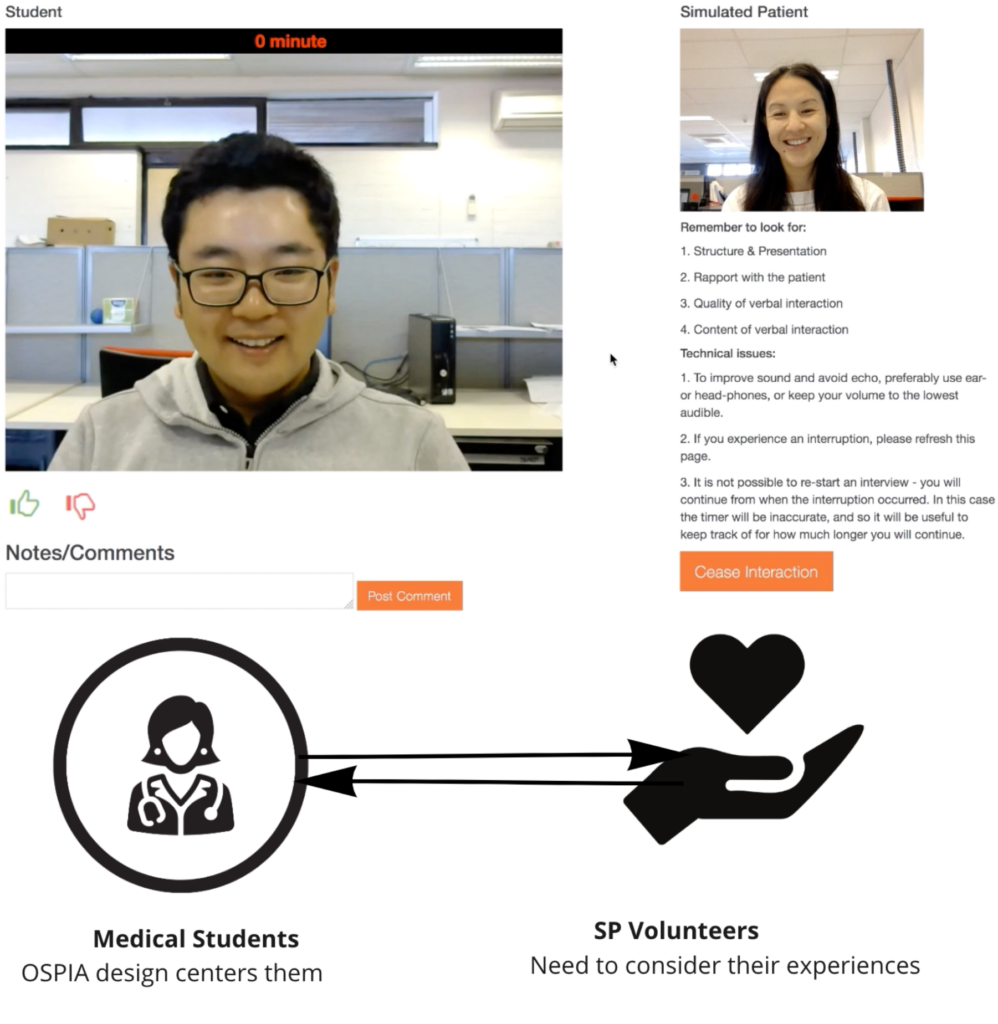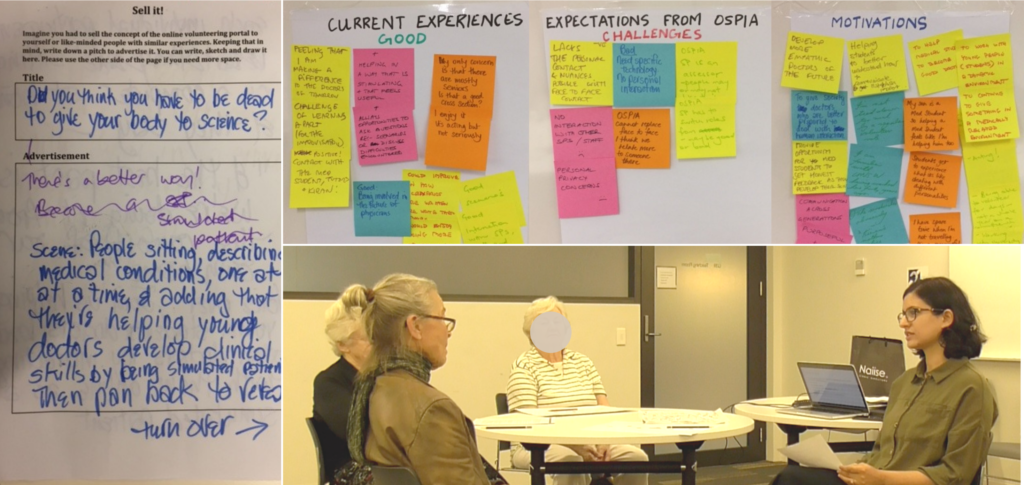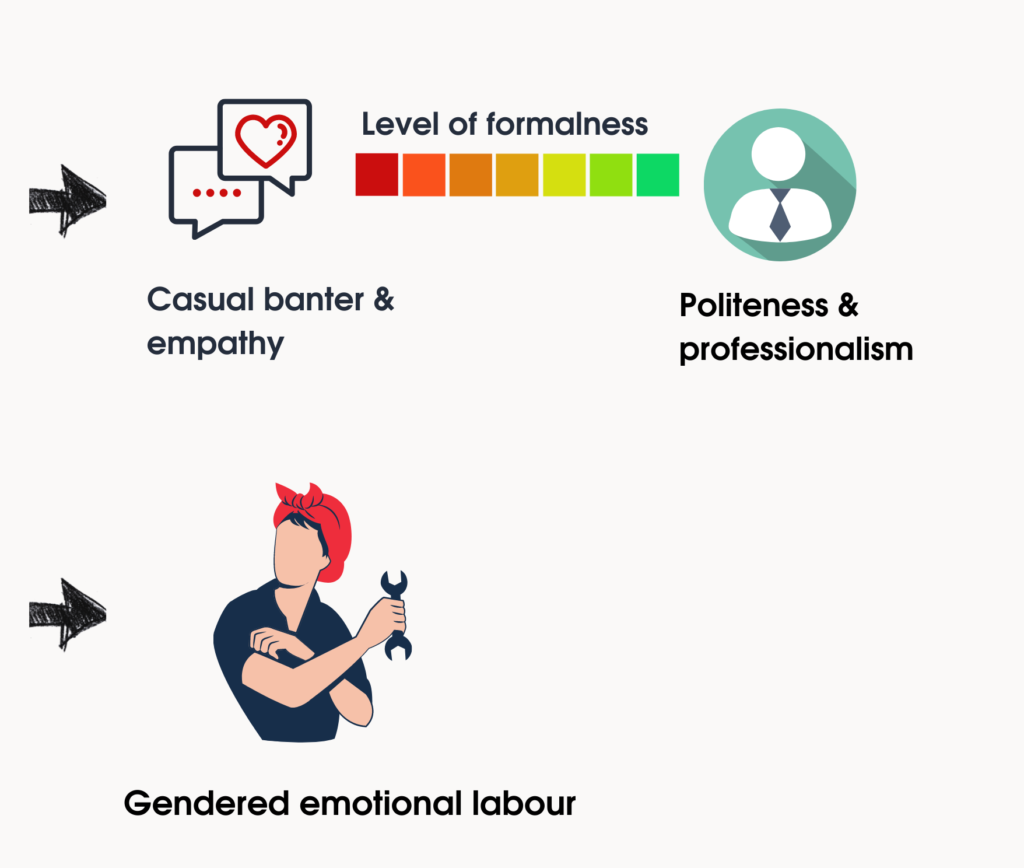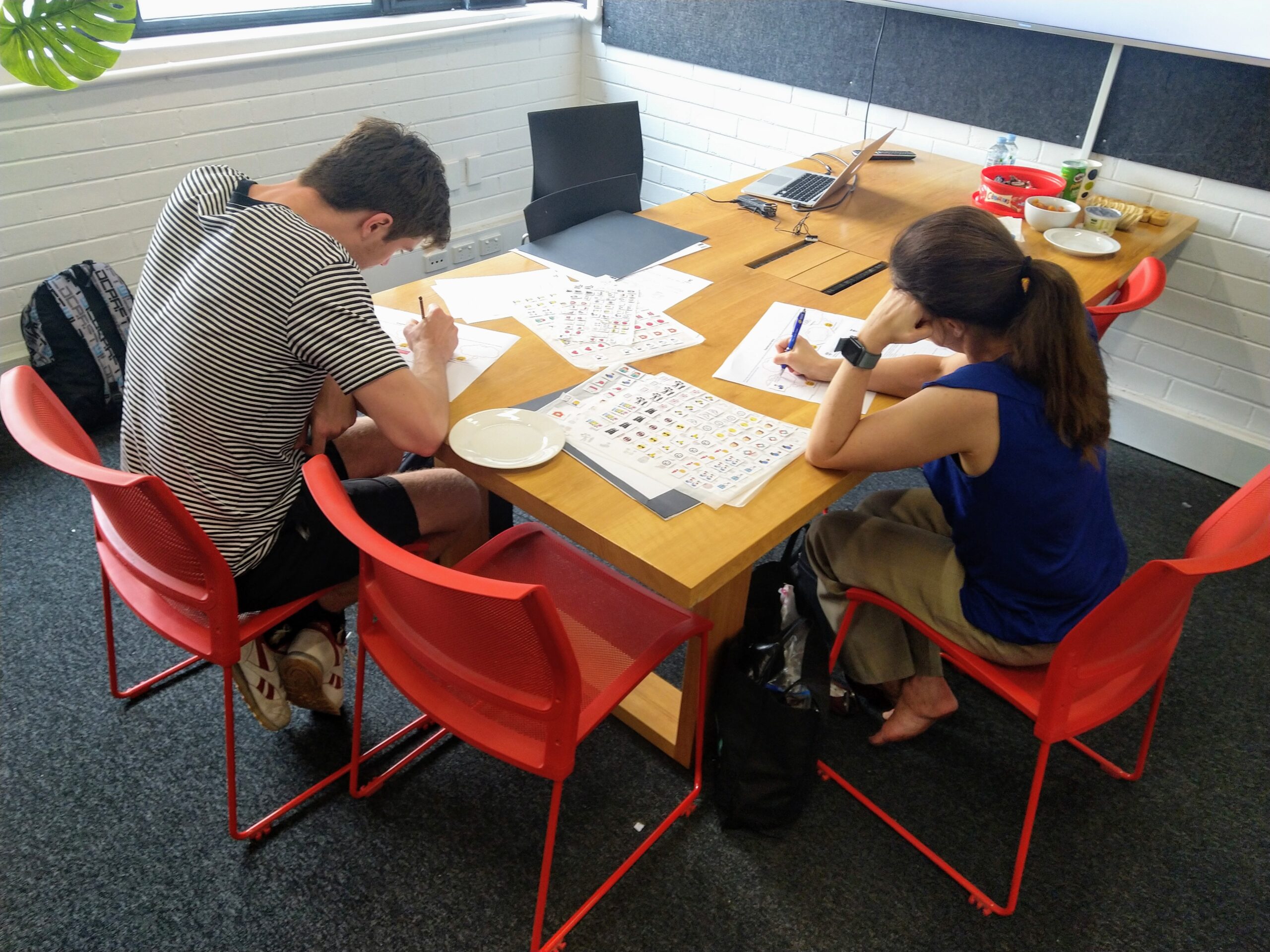

This research investigated design guidelines to support online volunteers in a number of settings, such as in a medical education platform called OSPIA where medical students practise their communication skills with volunteers who act as simulated patients (SPs).
OSPIA It is an online counterpart to its in-person module held at the University of New South Wales. The long-term feasibility of online volunteering platforms like OSPIA depends upon how they engage both volunteers and beneficiaries. With a focus on volunteers, the first phase of the project consisted of a survey and co-design workshops that aimed to study the experiences and motivations of volunteer SPs, both online and in-person. This resulted in useful insights and we developed design recommendations to enhance volunteer motivations, psychological needs, and user experiences. An important finding was that the psychological need of relatedness was significantly lower in online SPs than in-person SPs. The second phase of the project consisted of a design intervention. Beneficiary students were encouraged to express gratitude towards SP volunteers and we examined how this improved the relatedness between them. The third phase consisted of co-design workshops to study the volunteer perceptions of relatedness. These perceptions helped identify the importance of informal interactions and opportunities to address the emotional labour experienced by online volunteers.

People
- Khushnood Naqshbandi
- Silas Taylor
- Dr Rafael Calvo
- Dr Naseem Ahmadpour
Publications
- Naqshbandi, K., Mah, K., & Ahmadpour, N. (2022). Making space for faith, religion, and spirituality in prosocial HCI. Interactions, 29(4), 62-67.
- Naqshbandi, K. Z., Taylor, S., G. Pillai, A., & Ahmadpour, N. (2021, May). Labour of Love: Volunteer Perceptions on Building Relatedness in Online Volunteering Communities. In Extended Abstracts of the 2021 CHI Conference on Human Factors in Computing Systems (pp.1-6)
- Naqshbandi, K., Taylor, S., Pillai, A., and Ahmadpour, N. (2020) Designing for Helpers: Identifying new design opportunities for digital volunteerism, in Boess, S., Cheung, M. and Cain, R. (eds.), Synergy – DRS International Conference 2020, 11-14 August, Held online.
- Naqshbandi, K. Z., Liu, C., Taylor, S., Lim, R., Ahmadpour, N., & Calvo, R. (2020). “I Am Most Grateful.” Using Gratitude to Improve the Sense of Relatedness and Motivation for Online Volunteerism. International Journal of Human–Computer Interaction, 36(14), 1325-1341
